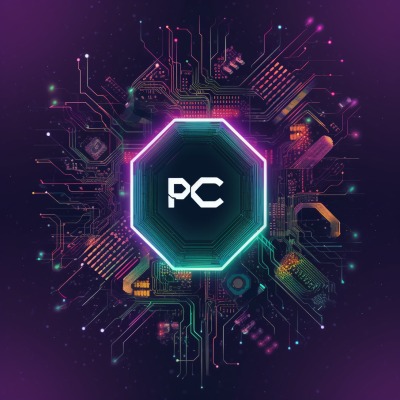Cryptocurrency is a digital asset secured by cryptography, making it nearly impossible to counterfeit or double-spend. A defining feature of cryptocurrencies is their decentralized nature, usually not controlled by any central authority, which makes them theoretically immune to government interference or manipulation.
In this text you will easily learn what is a cryptocurrency and how to buy your very first.
Key Cryptocurrrency Concepts
- Blockchain Technology: Cryptocurrency operates on a technology called blockchain, a digital ledger that records all transactions. This technology, introduced with Bitcoin in 2009, is transparent and immutable, meaning once data is recorded, it cannot be altered or deleted. Blockchains are decentralized, spread across a network of computers, making them secure against fraud and tampering.
- Mining and Transactions: Cryptocurrencies are created through a process called mining, where powerful computers solve complex mathematical problems to validate transactions and add them to the blockchain. Miners are rewarded with new cryptocurrency, incentivizing them to maintain the network’s integrity. Transactions are secured and irreversible once added to the blockchain.
- Public and Private Keys: These are essential for the security of cryptocurrency. A public key is a unique identifier to receive funds, similar to a bank account number. The private key is a secret code, akin to a PIN, used to authorize transactions. It’s crucial to keep the private key secure as it provides access to your cryptocurrency.
- Security and Safety: The decentralized and digital nature of cryptocurrency brings unique security challenges. Users must protect their private keys, use two-factor authentication, and be cautious of scams. It’s also important to use reputable exchanges and wallets, and keep software and hardware updated to protect against hacking and fraud.
Popular Cryptocurrencies
Bitcoin (BTC): The original cryptocurrency, created in 2009, Bitcoin operates on a decentralized blockchain and is known for its limited supply of 21 million coins. Primarily used as a store of value and for investments, it employs a Proof of Work consensus mechanism.
Ethereum (ETH): Launched in 2015, Ethereum is a platform for decentralized applications and smart contracts, beyond being just a cryptocurrency. It’s known for its flexibility and is transitioning from Proof of Work to Proof of Stake to enhance efficiency.
Pepe: Pepe-themed cryptocurrencies are part of a trend of meme-based digital assets, characterized by their humorous and community-driven nature. They’re typically used for online tipping and speculative trading.
Solana (SOL): A newer blockchain platform known for its high-speed transactions and low costs, Solana supports decentralized apps and uses a unique Proof of History mechanism alongside Proof of Stake.
How to buy Cryptocurrency?
To purchase cryptocurrencies, the initial step involves setting up an account on a cryptocurrency exchange platform. We recommend MEXC exchange which is available globally (USA, UK, Europe, Asia) and offers the best choice of difference crypto coins.
You can fund your account with fiat currency using bank transfers or credit cards, or deposit existing cryptocurrencies if you have any.
Once your account is funded, navigate to the SPOT section and select the desired cryptocurrency pairs (like BTC/USDT, ETH/USDT). The easiest thing is to place the market order, which would buy you Bitcoin or Ethereum for the best price available on the market currently.

Crypto in 2024
Cryptocurrency offers a new way of thinking about finance and transactions, unbound by traditional banking systems. However, its volatile nature and technical complexity mean it’s essential to understand the risks and keep up with security best practices. As the technology evolves, it may play a more significant role in various industries beyond just currency.
2024 is a great year to get into crypto market.
Start small, don’t risk more than you can afford to lose.
If you want to learn more about crypto, read our full cryptocurrency tutorial for 2024.
P.S. Nothing here is financial advice. Purely educational content.


Leave a Reply